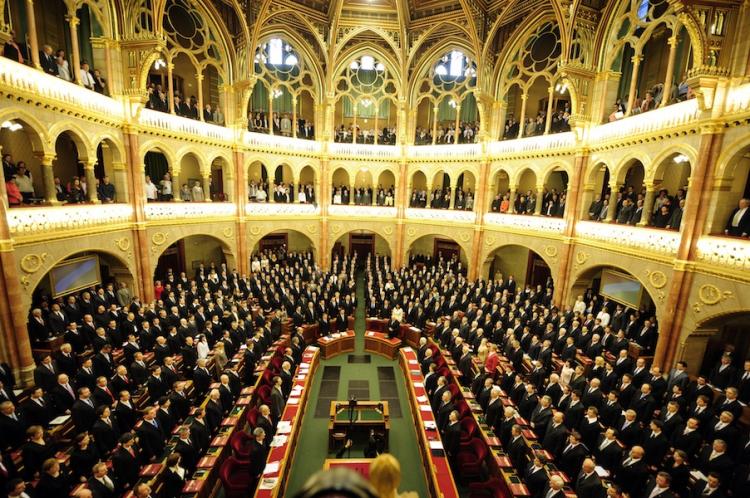Hungary’s Parliament Expands List of Recognized Churches, But Rejects Many Applicants
By The INSTITUTE on Religion and Public Policy | Mar 01, 2012

Hungary’s coalition government on Monday expanded the list of churches the nation formally recognizes from 14 to 32.
Among the newly recognized ones are five Buddhist groups, Methodists, Jehovah’s Witnesses, the Church of Latter Day Saints and two Islamic communities.
Opposition parties boycotted the vote in Parliament, but the center-right Fidesz party and its tiny ally, the Christian Democrats, mustered the required two-thirds majority. The requests of 66 other religious groups were rejected, including all those backed by the opposition parties.
Formal recognition gives churches tax-free status, qualifies them for government support and allows them to collect donations during services and do pastoral work in jails and hospitals.
Churches losing their official status from March 1 will be allowed to function as associations and can reapply for recognition next year.
Hungary’s church law is being analyzed by experts from the Council of Europe’s Venice Commission, including claims that its restricts and overtly politicizes religious freedoms.
Earlier, religious groups in Hungary needed only to register with a court to gain official recognition. This led to abuses, including businesses registering as churches to take advantage of tax benefits, and there were nearly 370 churches recognized in Hungary.
In December, the Constitutional Court struck down the church law passed in July 2011 by the coalition government on procedural grounds, but did not review its contents. At the end of last year, an even stricter version of the law was passed again by lawmakers.
Initially, the church law granted official status to 14 Christian churches and Jewish groups. The rest had to apply for recognition by Parliament.
The Hungarian Academy of Sciences turned down a request from Parliament to give its position on which churches met the conditions needed to retain their official status, saying the issue was an administrative decision, not a scientific one.
The opposition Socialist Party has asked President Pal Schmitt, a supporter of the coalition government, to refrain from signing the law into force.















